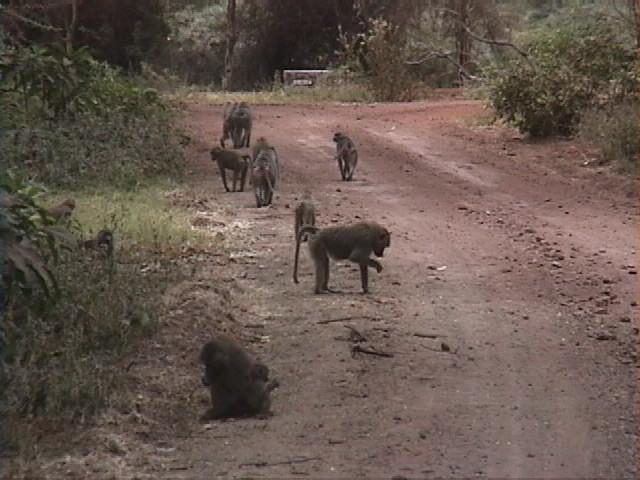|
| Query: Papio papio | Result: 114th of 135 | |
(P:AfricaVideoStills) Dn-a1630.jpg (Olive Baboons)
| Subject: | (P:AfricaVideoStills) Dn-a1630.jpg (Olive Baboons)
| | Poster: | Darren New (dnew@san.rr.com)
| |

| File size : 46540 bytes
File date : 2001:05:23 17:27:19
Resolution: 640x480
Jpeg process : Baseline
Posted Newsgroups: alt.binaries.pictures.animals
Posted Date: Thu, 15 Mar 2001 02:33:36 GMT |
(P:AfricaVideoStills) Dn-a1630.jpg (Olive Baboons)
Comments
========
From: dnew@san.rr.com (Darren New)
Subject: (P:AfricaVideoStills) index13.gif (0/1) (315 K)
Date: Thu, 15 Mar 2001 02:32:02 GMT
1617 is a dik-dik.
The primates are baboons.
1645 is (i'm told) a nile monitor.
1653 is a black-mane lion.
1647 is more weaverbird nests.
1648-1650 - Sorry about that.
Kenya and Tanzania, Summer 2000.
Stills from digital video camera.
640x480 JPEG, mostly unretouched.
Missing numbers are due to chopping
out non-animal pictures (such as
scenery, plant life, etc.)
Released to the Public Domain,
but I would appriciate hearing about
commercial use of the photos.
-- Darren New.
Comments
=======
Anubis baboon or olive baboon - Papio anubis
The olive baboon (Papio anubis), also called the Anubis baboon, is a member of the family Cercopithecidae. The species is the most wide-ranging of all baboons, being found in 25 countries throughout Africa, extending from Mali eastward to Ethiopia and Tanzania. Papio anubis inhabits savannahs, steppes, and forests. The common name is derived from its coat color, which is a shade of green-grey at a distance. |
^o^
Animal Pictures Archive for smart phones
^o^
|
|

